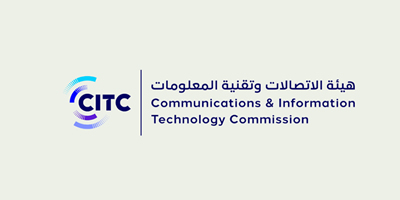By now, most of us are quite familiar with the term Digital Twin being used across industries, including the ICT industry. The concept of the digital twin has been defined as a digital representation or visualization of a physical or nonphysical entity, such as an organization, city, product, a person that can assist technologists to simulate, predict and forecast the behavior and even control aspects of the physical counterpart in real-time. Digital twin technology (DTT) is gaining momentum for its business benefits, including speeding up product development lifecycles, cost-effectiveness, and creating result-oriented new business models.

Reports and Coverage
Tale of innovation: Quantum in telecom
Abu Dhabi is currently building its own quantum computer — the first innovation of its kind in the UAE.
Egypt to raise ICT sector’s GDP contribution to 5% by 2025
Egypt's ministry of planning and economic development plans to raise the contribution of the telecommunication and information technology sector in the state’s gross domestic product (GDP) to 5% by 2025, from an expected target of 2.6% for fiscal year (FY) 2020/2021, minister of planning and economic development Hala El-Said has revealed, according to state news reports.
Saudi ICT sector set to exceed $27bn by 2025, says CITC gov
Addressing industry experts and stakeholders about the importance of an interconnected economy, Mohammed Al-Tamimi, governor of the Communications and Information Technology Commission (CITC) said that Saudi Arabia will see significant growth in all major areas of digital technology from Internet of Things (IoT) to cloud computing, taking the entire size of the information and communication technology (ICT) sector to $27 billion by 2025.
CITC publishes consultation on spectrum light licensing
Saudi communications authority the Communications and Information Technology Commission (CITC), has published a consultation on 'spectrum light licensing’.
The curious case of facial recognition technology
To open a new bank account, one needs to have two things - money and a face. Puzzled? Don’t be. Welcome to the world of AI-enabled face recognition technology (FRT) that allows an ‘instant and highly secure verification’ process before opening a bank new account. In the UAE, a leading bank collaborated with the Ministry of interior's facial recognition verification system to become the first bank in the country to perform a seamless and efficient verification process using enhanced security measures against fraud and other forms of identity theft. What this means is that UAE citizens and residents can open a new account remotely without the need to visit the bank by using just their faces.
KSA sets aside SR4 bn to upskill digital talents, unveils home-grown smart chips
Saudi Arabia launched a host of technology initiatives worth SR4 billion ($1.06 billion) directed at upskilling the 100,000 Saudi digital talents in line with Saudi Vision 2030, according to state news agency report.
Etisalat transforms healthcare in UAE with digital innovation
Etisalat Digital’s (business unit of Etisalat) unified patient experience value proposition transforms patient care through a combination of innovative technologies.
Savoye appoints Alain Kaddoum as managing director for the Middle East
As part of its mission to solidify its position in the Middle East as a leading global warehouse automation integrator and software publisher, Savoye has announced the appointment of Alain Kaddoum as the Middle East managing director. With Kaddoum now on board, Savoye will enhance its long-term strategy to become one of the leading providers of supply chain solutions in the region, combining hardware and software according to customer needs such as manual, semi-mechanised, mechanised, highly automated, or robotised installations.
Qatar: a model for IPv6 adoption
The internet as we know it is transitioning to the latest Internet Protocol Version 6 (IPv6) to fulfill the ever-growing need for internet connectivity. IPv6 promises long-term global and enterprise-level benefits and various businesses and technical service providers have already moved to IPv6-only or dual stack network driven operations.

















